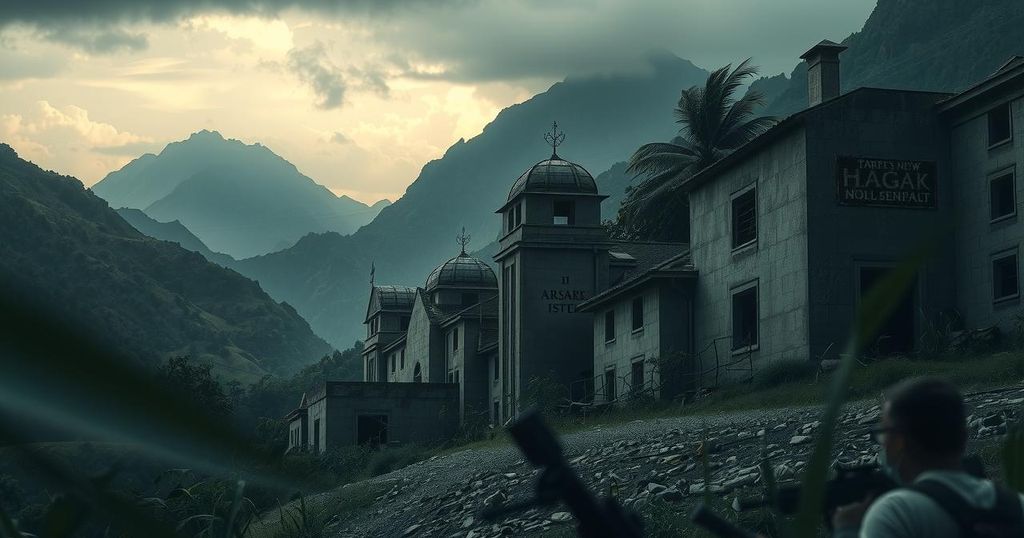Goma faces a humanitarian crisis as M23 rebels seize control, with bodies in the streets and hospitals overwhelmed. Communication has faltered due to internet blackouts. The M23 group, backed by illicit mineral trade and alleged Rwandan support, aims to advance politically, while the Congolese government mobilizes defense efforts amidst severe displacement issues.
In the city of Goma, the M23 rebel group has taken control amidst escalating violence in the Democratic Republic of Congo. Civilians like an aid worker named Faith describe the dire humanitarian crisis, with corpses littering the streets and overwhelmed hospitals lacking basic necessities. Communication is hindered as internet access has been cut off, complicating the situation for those remaining in the city.
The M23, known for its Tutsi leadership, accuses the Congolese government of failing to uphold peace agreements. Reports suggest they are supported by Rwanda, although this has been denied by the Rwandan government. The rebels, financially sustained by the illicit mineral trade, aim to extend their influence while the Congolese government prepares to resist, calling for military mobilization.
The conflict in the Democratic Republic of Congo has persisted for over a decade, particularly in the eastern region where Goma is located. M23 signifies the March 23, 2009, accord intended to conclude a previous Tutsi-led uprising. The area is heavily populated, with millions currently displaced due to ongoing violence, highlighting the urgent need for humanitarian assistance and political solutions to the crisis.
The situation in Goma reveals a critical humanitarian emergency exacerbated by the M23 rebellion. As conflict intensifies, the need for effective dialogue and a coordinated international response becomes paramount. With millions of displaced individuals suffering, immediate action is necessary to restore stability and safety in the region.
Original Source: www.independent.co.uk




